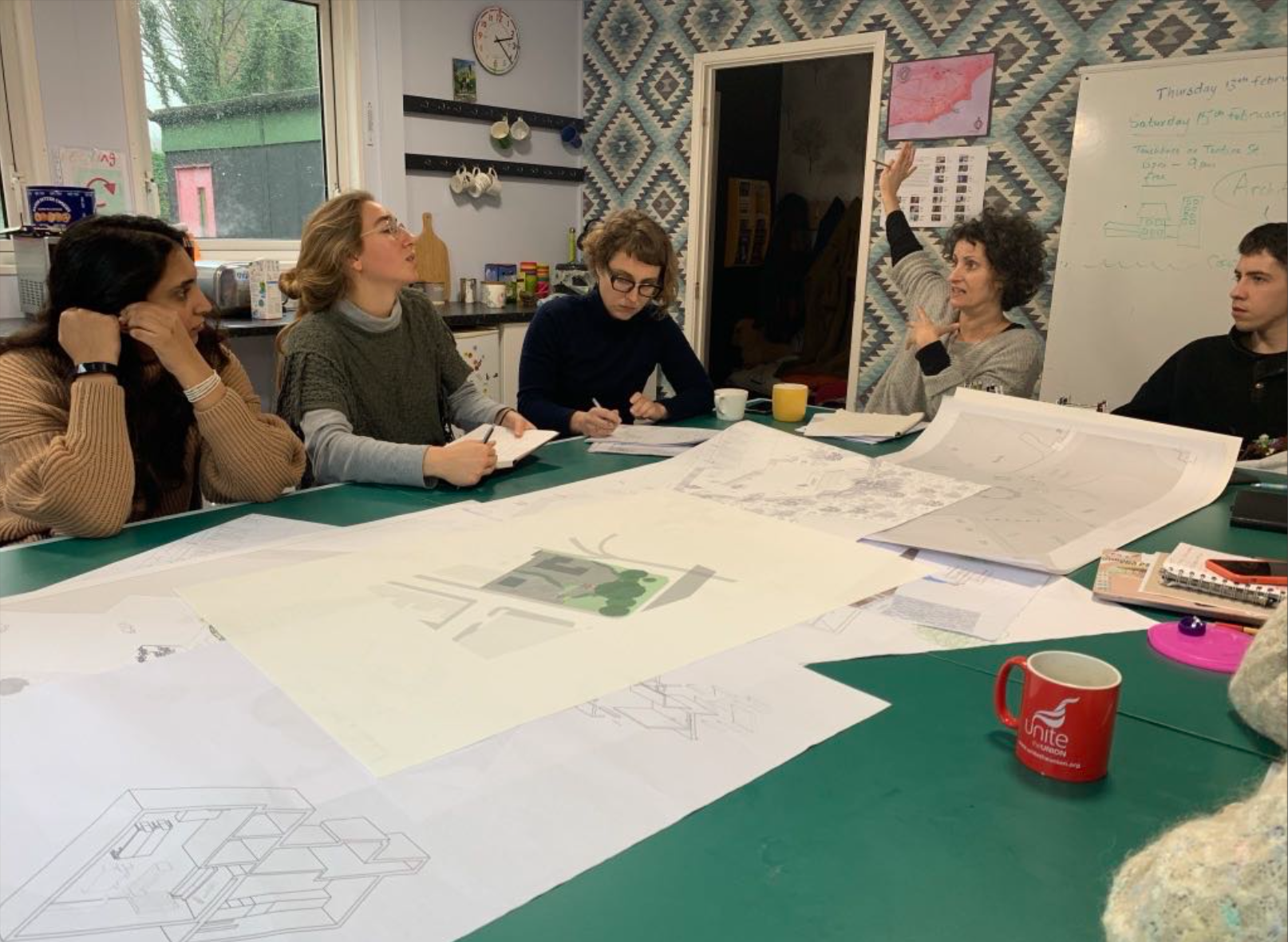GLOBAL
2020
FREE
UNIT
Research Studio at the University of Brighton as part of the Equip funded research into displacement
DWELL: Displacement, Placemaking and Wellbeing in the City
Location: South-East England
Location: South-East England
2019—2020
ABOUT
This research seeks to examine the placemaking processes through which people build, attach meaning, belong to and derive wellbeing (or not) from and in their urban living and working environments. We examine these processes in relation to the complex, multi-layered, formal and informal ‘modalities of reception’ through which governments and other actors direct the legal statuses and rights, behaviours and integration options of displaced populations.
This work aims to ascertain how interactions between these modalities and placemaking processes generate particular wellbeing outcomes, and enable displaced groups to sustainably contribute to the economic, social and cultural advancement of cities. To this end, we will also propose a number of design interventions rooted in displaced groups’ needs and priorities.
This work aims to ascertain how interactions between these modalities and placemaking processes generate particular wellbeing outcomes, and enable displaced groups to sustainably contribute to the economic, social and cultural advancement of cities. To this end, we will also propose a number of design interventions rooted in displaced groups’ needs and priorities.
PLACES
>89m
forcibly displaced people worldwide
-UNHCR, 2021
-UNHCR, 2021
>28m
are refugees and over 50% of them live in urban areas
>36.5m
forcibly displaced children below 18 years old
Home
Journey
Arrival
Coast
Folkestone
Canterbury
Journey
Arrival
Coast
Folkestone
Canterbury
/15
/21
/9
/12
/15
/17
Illegal entry points
Folkestone, UK
2019
Photo:
Ioanna Kouli
Folkestone, UK
2019
Photo:
Ioanna Kouli
folkestone, UK
Folkestone Beach
Arrival Landscape
UK, 2019
Photo:
Ioanna Kouli
Arrival Landscape
UK, 2019
Photo:
Ioanna Kouli
coastal arrival
Folkestone Harbour
UK, 2019
Photo:
Ioanna Kouli
UK, 2019
Photo:
Ioanna Kouli
urban wellbeing
The Global Free Unit helps students to generate and realise projects, while connecting their actions to their own history, experience and ethical position.
The research studio at the University of Brighton ran for a year and generated a live project, which is now seeking funding.
/ Read More

/ Read More
We tested an experimental research and pedagogical approach imbedded in a sensitive real-life context
/ Read More
/ Read More
The Studio collaborated with a local organisation called KRAN which supports young asylum seekers.
EMPATHY //
A personal experience
A found experience
A personal experience
A found experience
EXPERIENCING ARRIVAL //
Arrival Maps: borderscapes
Arrival Maps: borderscapes
.1
.2
MAPPING RECEPTION //
Arrival City: urban spaces
Arrival City: urban spaces
DIGITAL NETWORKS //
An Urban Education
An Urban Education
.3
.4
STUDIO BRIEFS
Bogdan
Rasu
Rasu
- Empathy:
Sherifah
Alhajeri
Alhajeri
2.Experiencing Arrival: borderscapes
Ioanna
Kouli
Kouli
3. Mapping Reception
Camilla
Thrun-Valsassina
Thrun-Valsassina
1986
4.Digital Networks: the contract
ENGAGING & GIFTING //
DESIGNING STRATEGIES //
.5
.6
COLLABORATION & TRAINING //
Urban Networks
Urban Networks
HOSTING //
.7
.8
STUDIO BRIEFS
Camilla
Thurn-Valsassina
Thurn-Valsassina
5. Engaging & Gifting
Sherifah
Alhajeri
Alhajeri
6. Designing Strategies
Camilla
Thurn-Valsassina
Thurn-Valsassina
7. Collaboration & Training
Bogdan
Rasu
Rasu
8. Hosting
TUTORS
COLLABORATORS
Robert
Architect, educator and urbanist, founder of the Global Free Unit, Robert Mull is Professor of Architecture and Design at the University of Brighton and where he works with a number of international partners.
Xenia
Urbanist and educator, Xenia Adjoubei does territorial analysis in contexts of the devaluation of human life, is researcher at the GFU and Visiting Assistant Professor at the Pratt Institute.
KRAN
Charity working with young unaccompanied asylum seekers and refugee minors. These are young people aged 16 to 24 who have arrived in Kent alone and are claiming asylum. Providing them with a safe, positive space supporting them to succeed.
